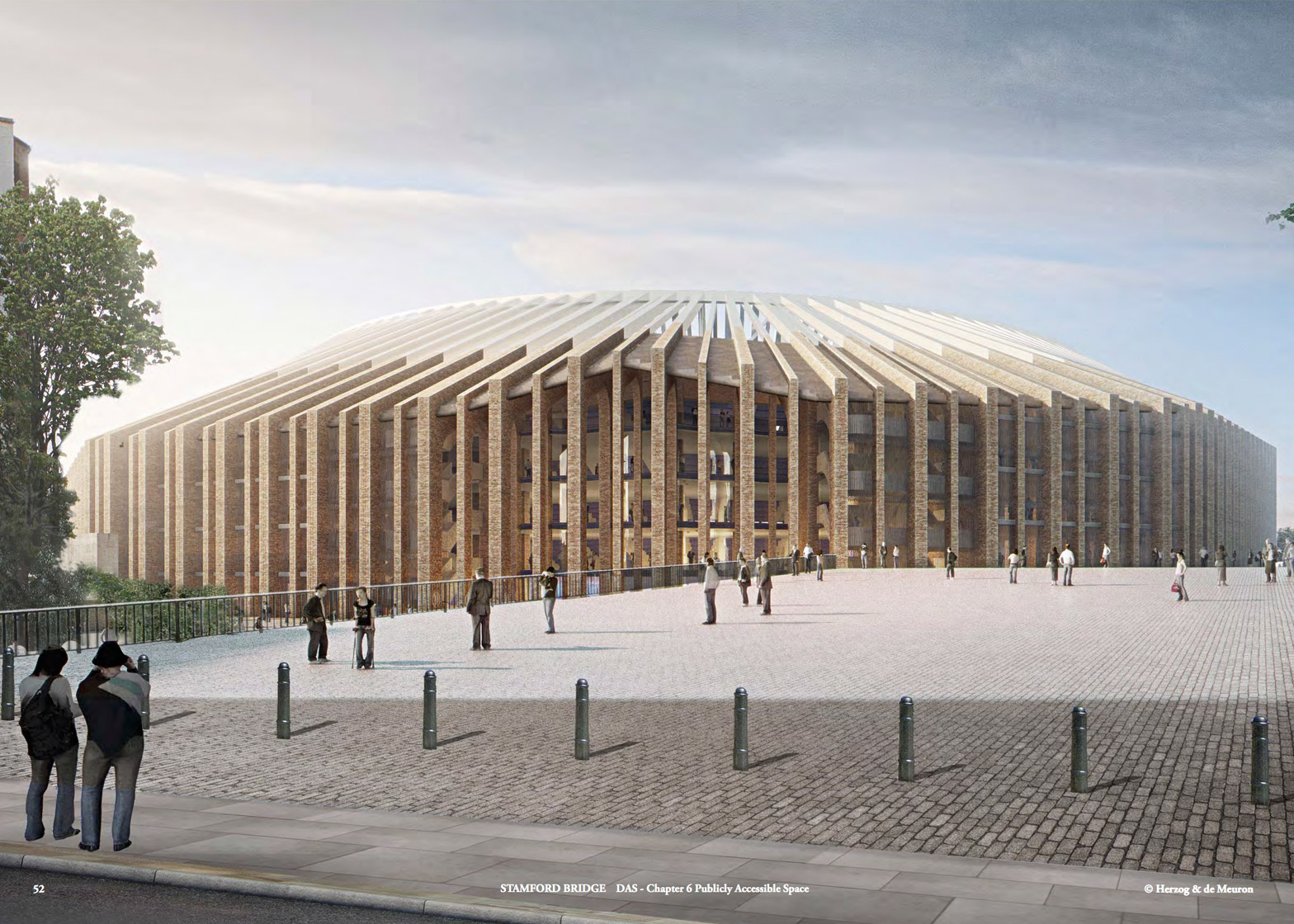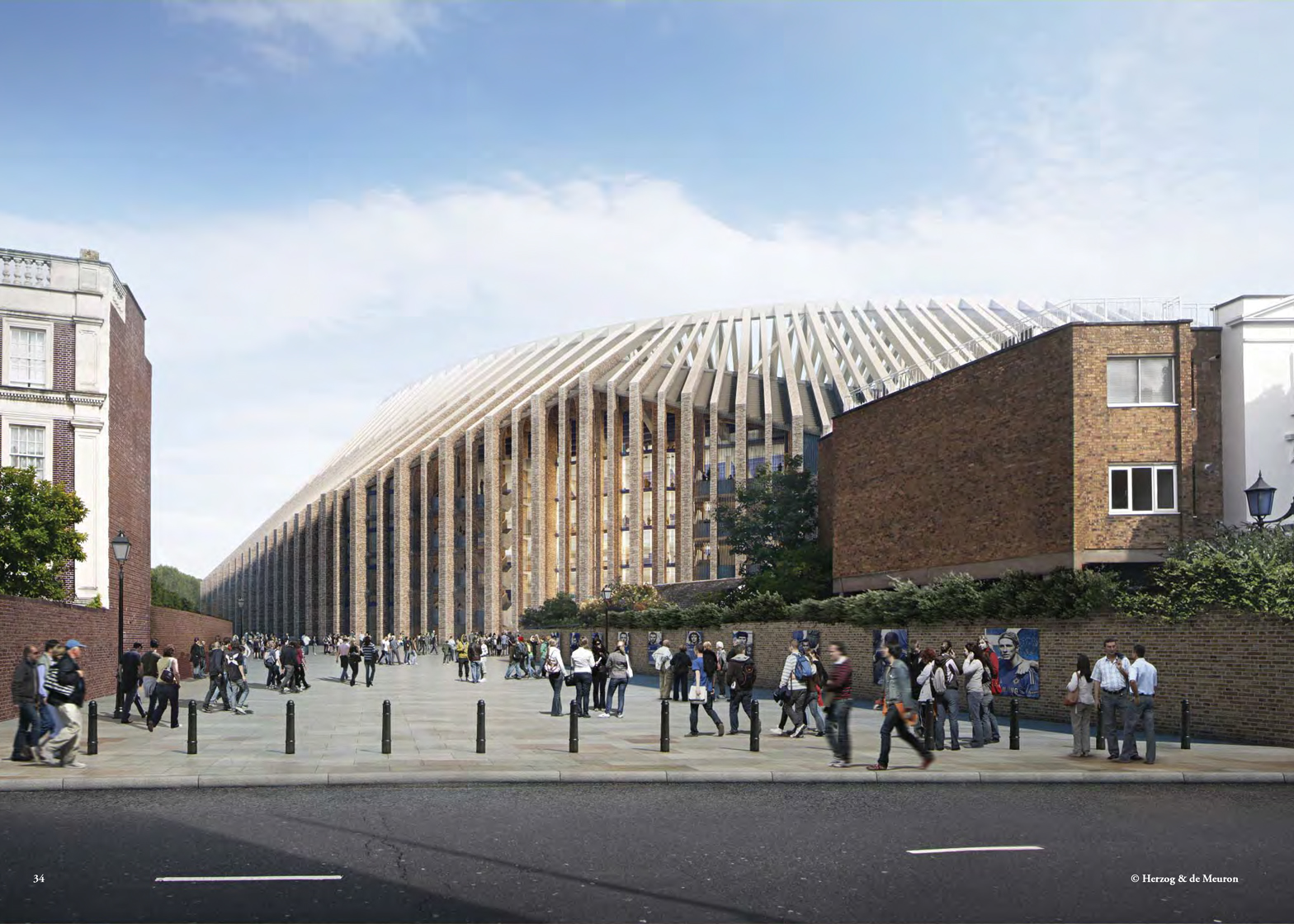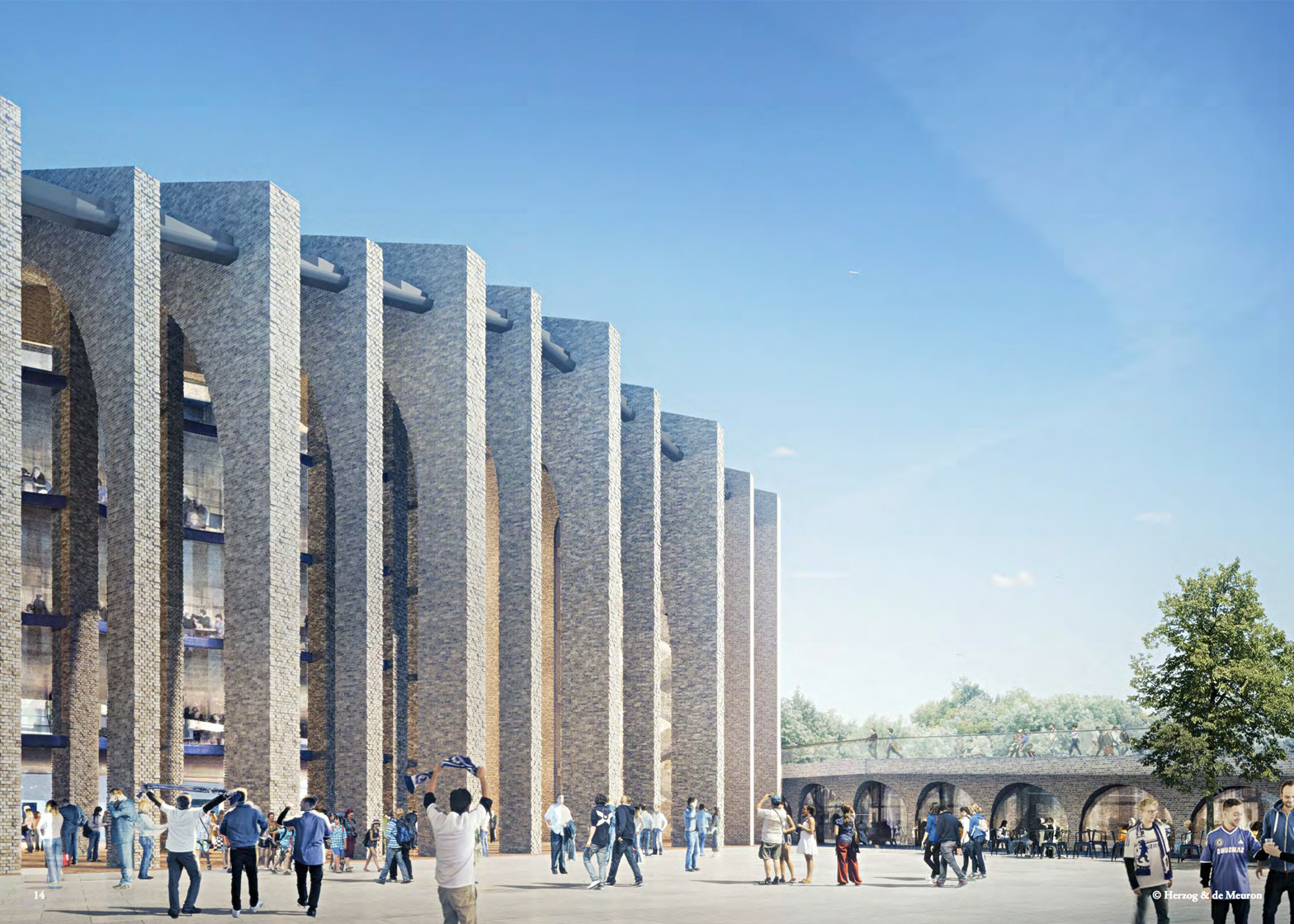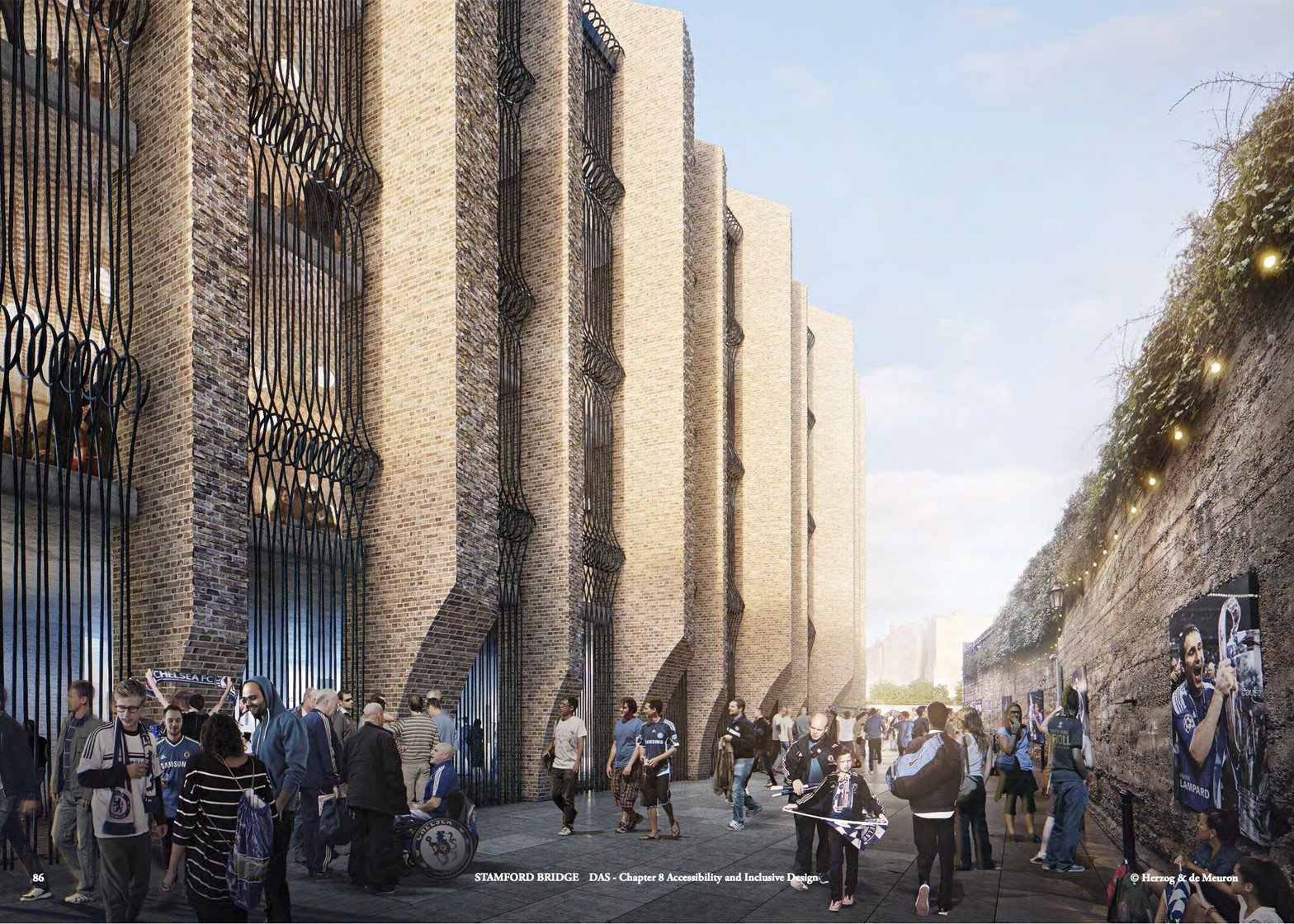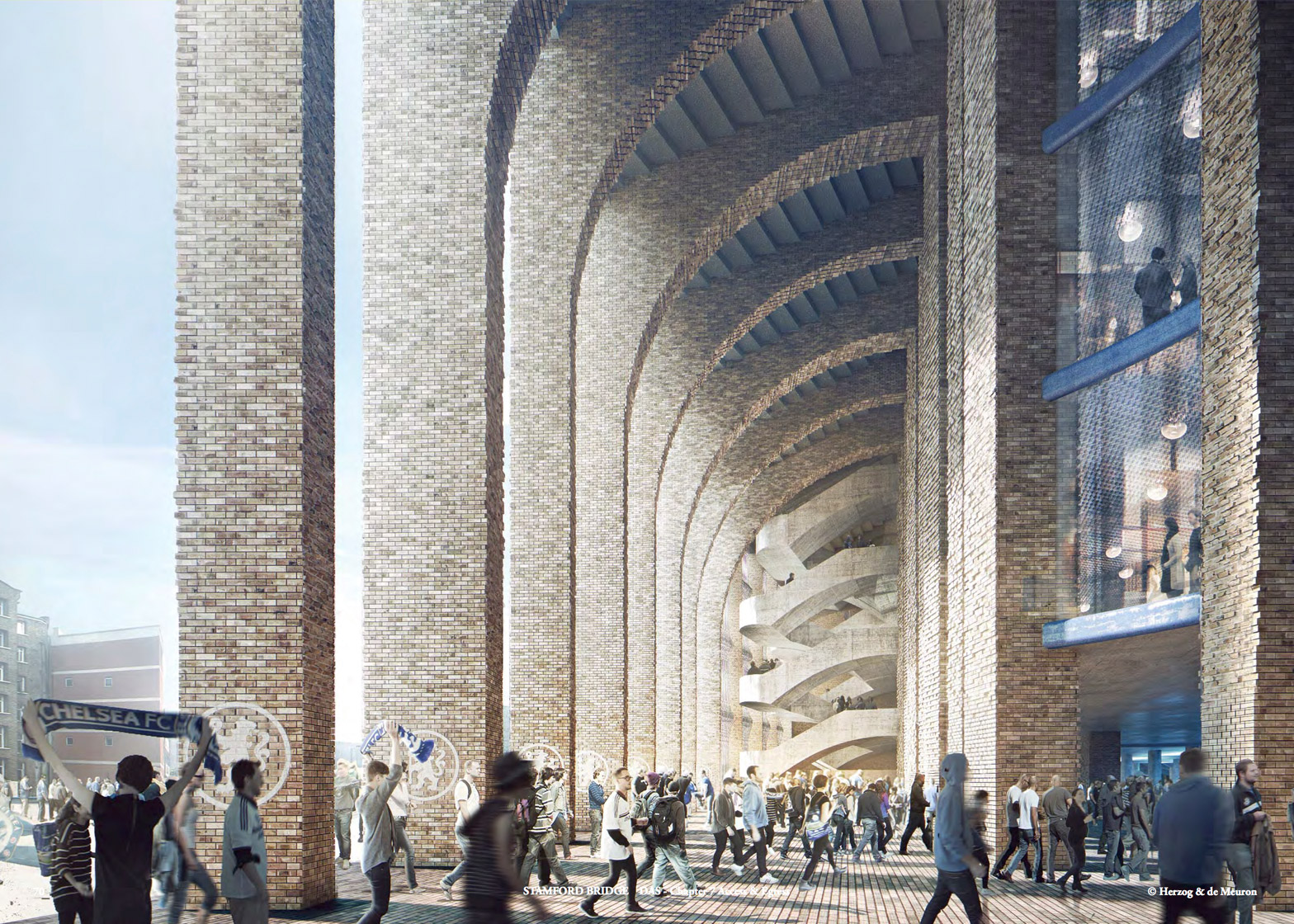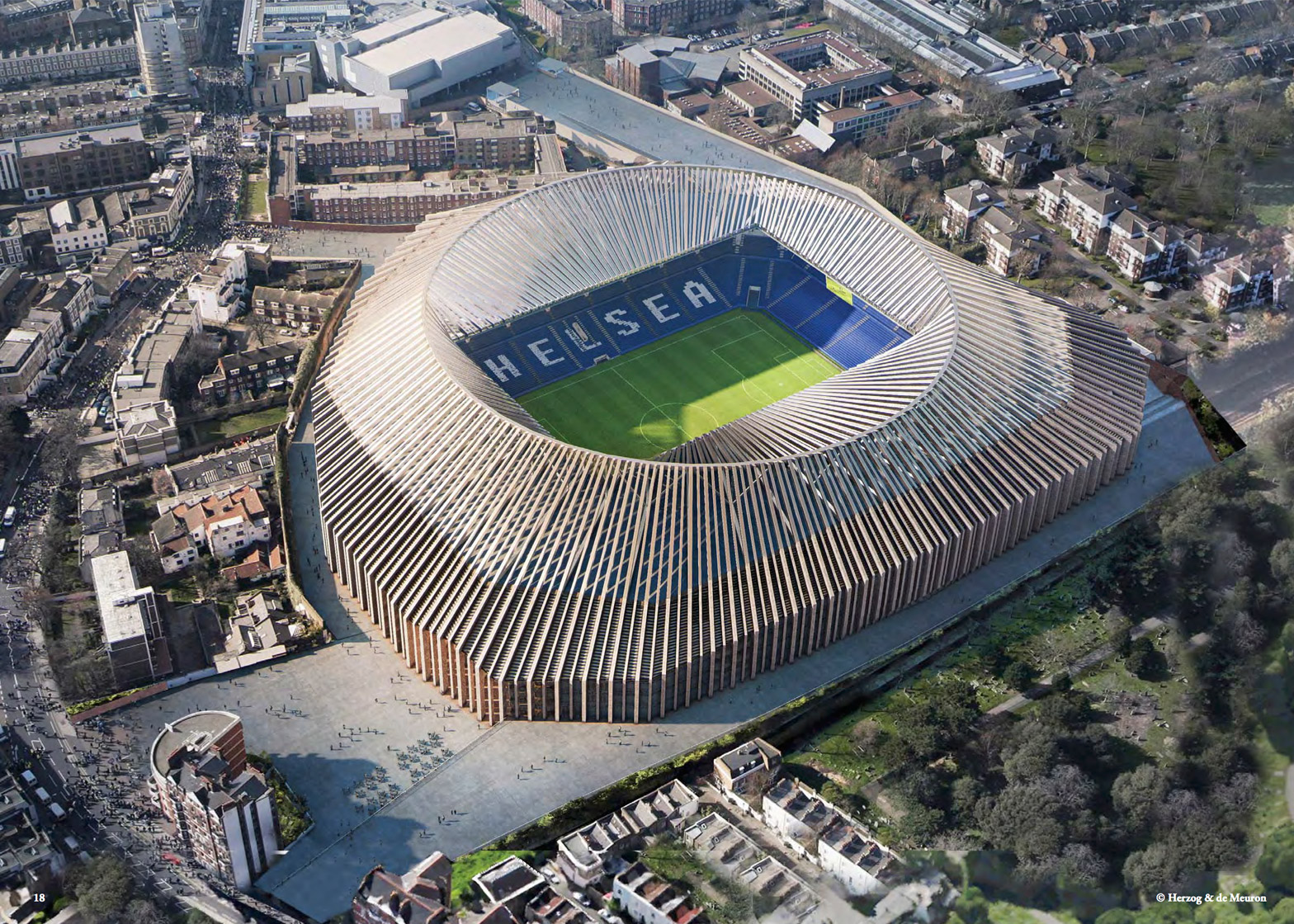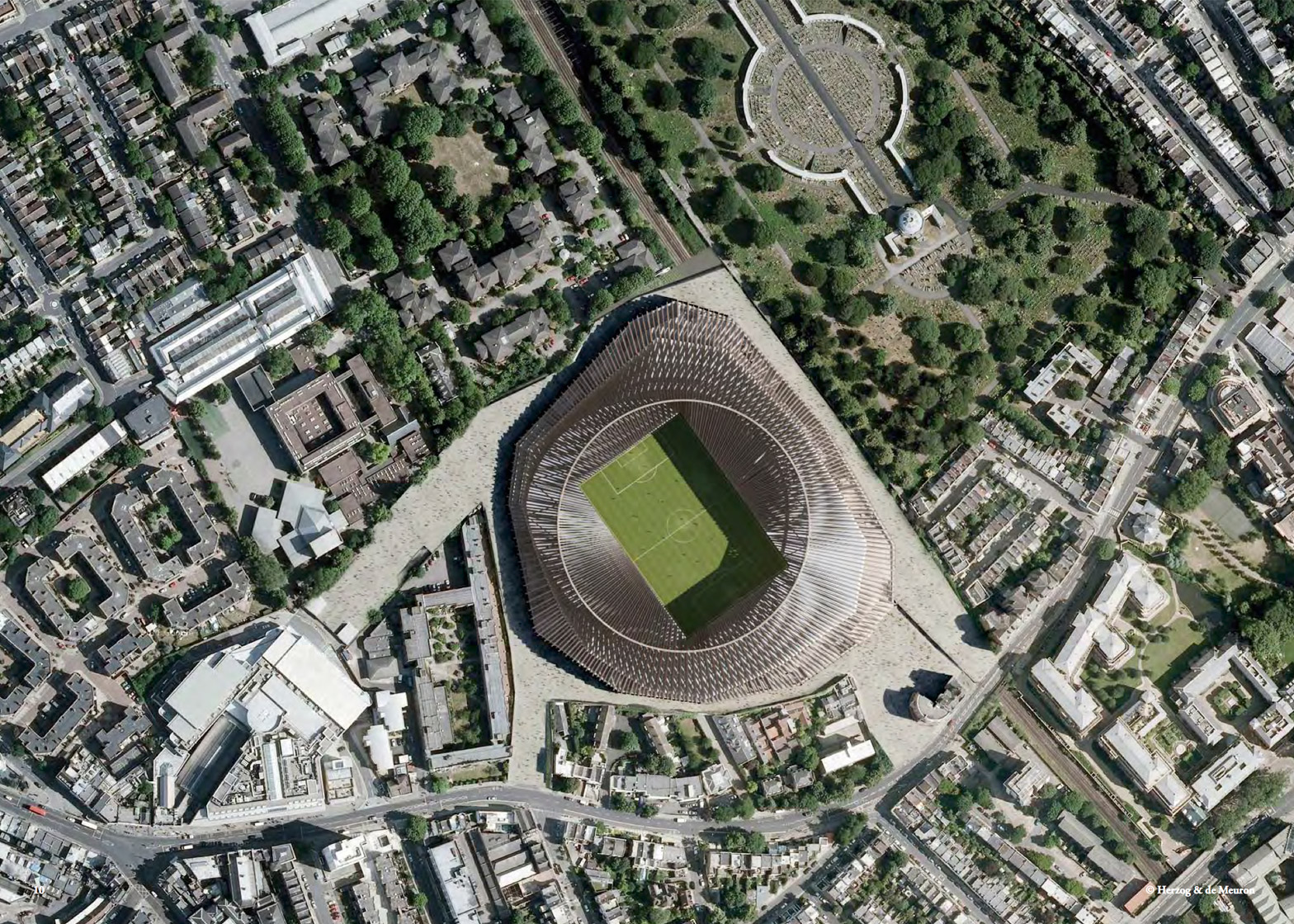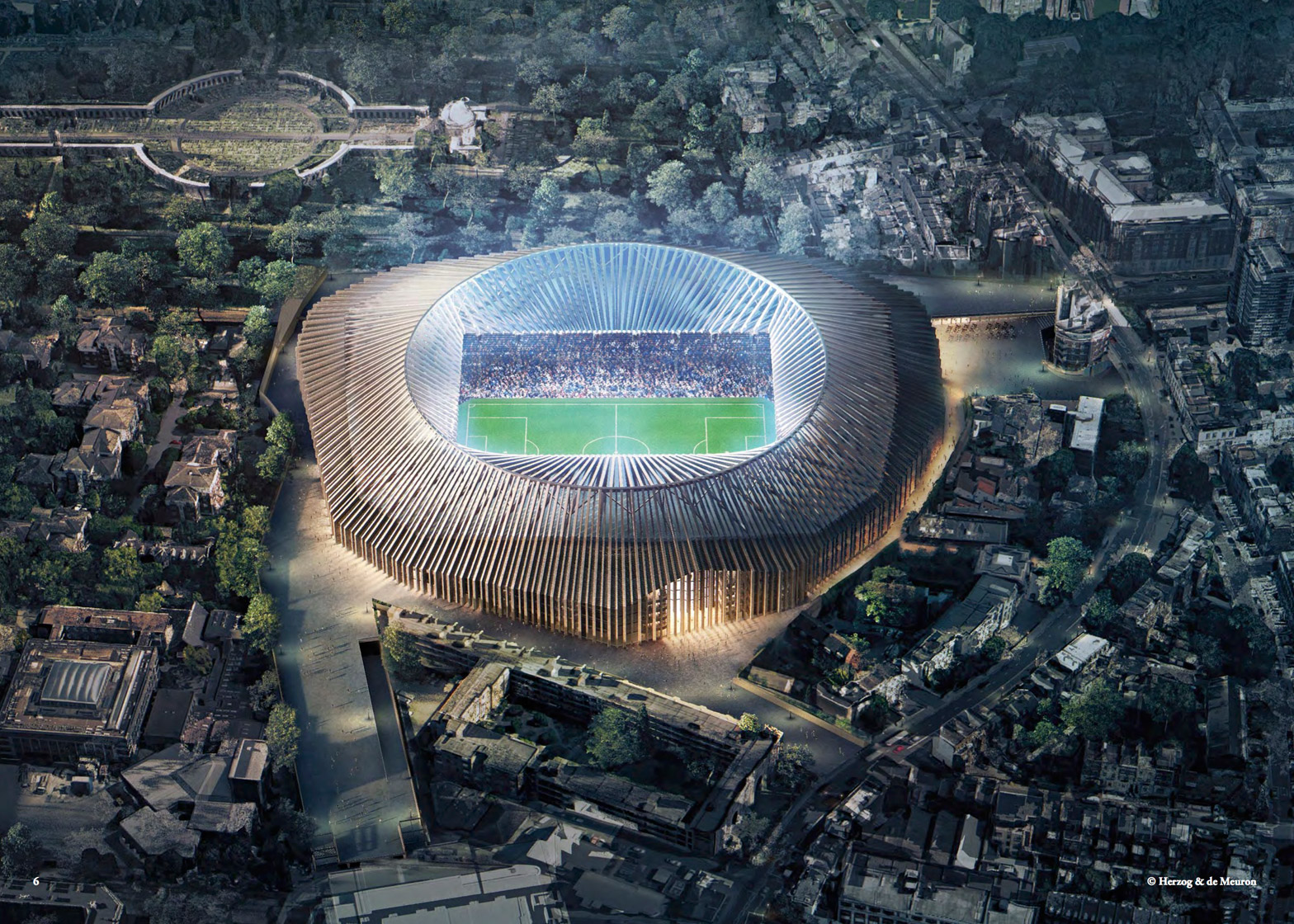Herzog & de Meuron has unveiled its final design for the revamp of Chelsea FC's London stadium, with a brick and steel addition it describes as a "contemporary sculpted form" (+ slideshow).
The Swiss firm is working with London architecture firm Lifschutz Davidson Sandilands on the overhaul of the west London football club's 41,837-seat Stamford Bridge stadium. The main aim of the project is to increase spectator capacity to 60,000.
First images of the proposal emerged during the summer, but the design team has now submitted a planning application to Hammersmith & Fulham council detailing its design.
The most prominent new feature will be a series of brick piers that extend over the existing stadium form to support a steel ring above the pitch, covering an increased number of seats.
The piers are intended to reference local brick architecture, and also create a covered walkway around the perimeter of the building.
According to Herzog & de Meuron, the design will "capture the spirit of the local heritage in a contemporary sculpted form that will respond to the local townscape and to neighbours’ views and light".
"The structure will have a lightness of expression when viewed directly but also a solidity and textural materiality when seen obliquely," it said.
Access to nearby Fulham Broadway Station will be improved, making travel easier for spectators, while the arena itself will offer "an outstanding view of the stadium from every seat".
Built in 1876, Stamford Bridge was designed by Scottish architect Archibald Leitch and was initially used as an athletics club before becoming Chelsea's home ground in 1905.
The football club first revealed plans to redevelop the stadium in June 2014, having previously explored options for new grounds at Earls Court, and on the south side of the River Thames at Battersea Power Station.
Lifschutz Davidson Sandilands was initially appointed by Chelsea FC owner Roman Abramovich to explore options that would allow the club to remain at Stamford Bridge, with Herzog & Meuron joining the project later.
The Swiss firm famously designed the Bird's Nest stadium for the Beijing 2008 Olympic Games, and has also completed football stadiums in Munich, Basel and Bordeaux.

